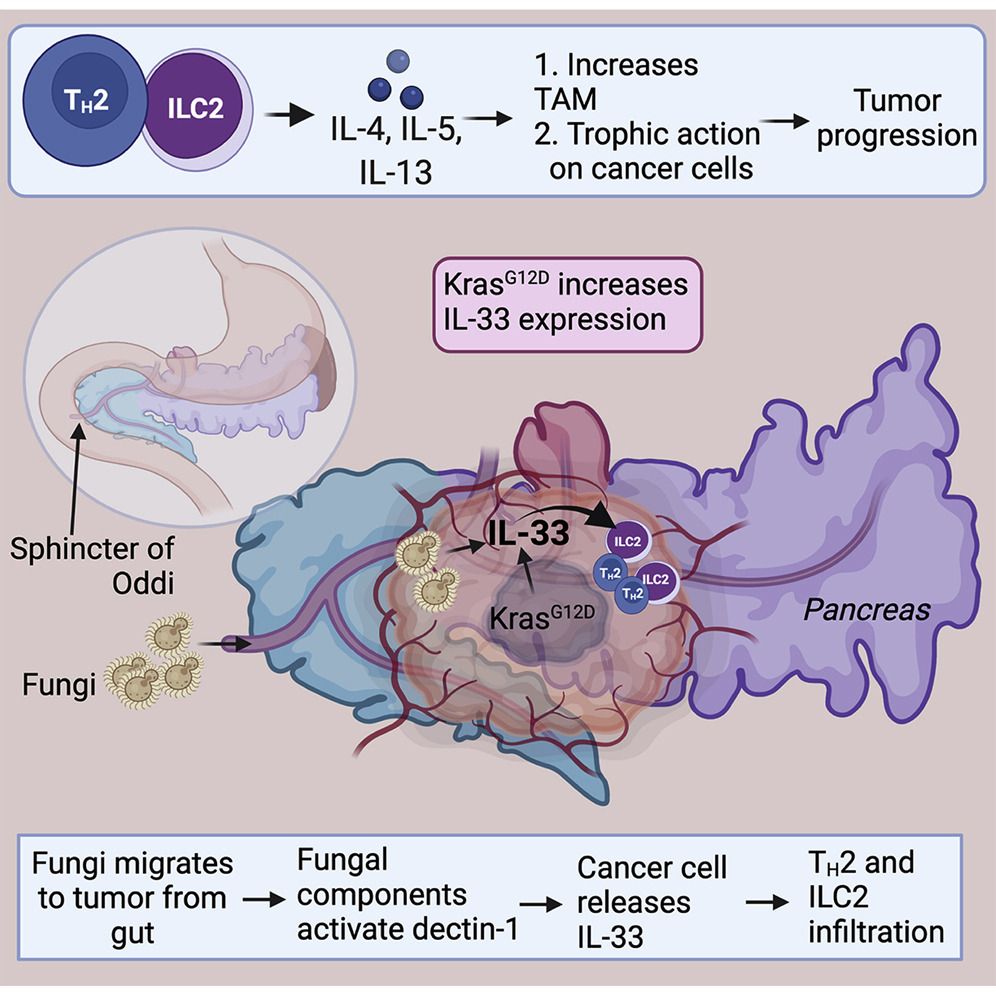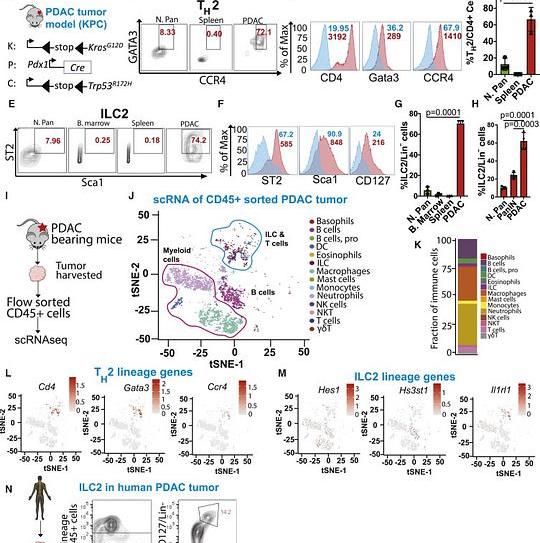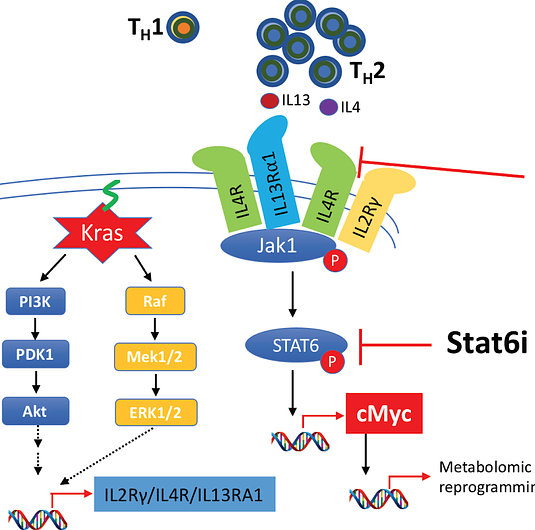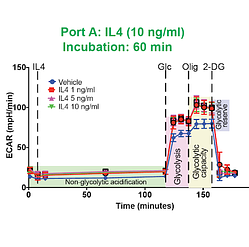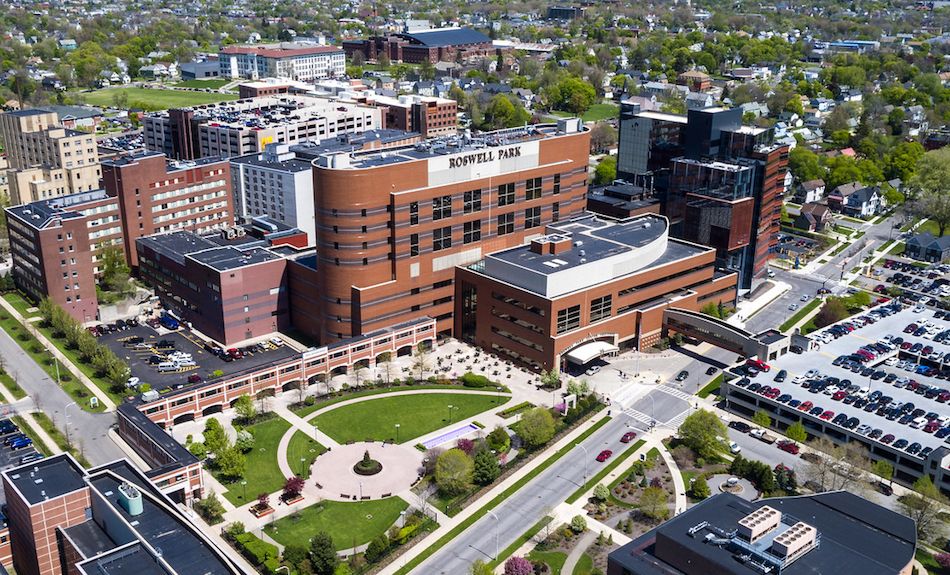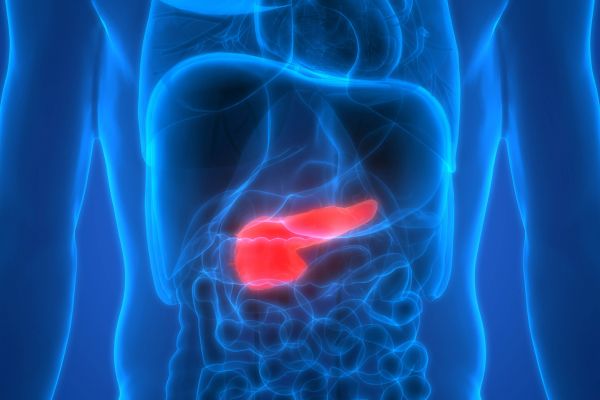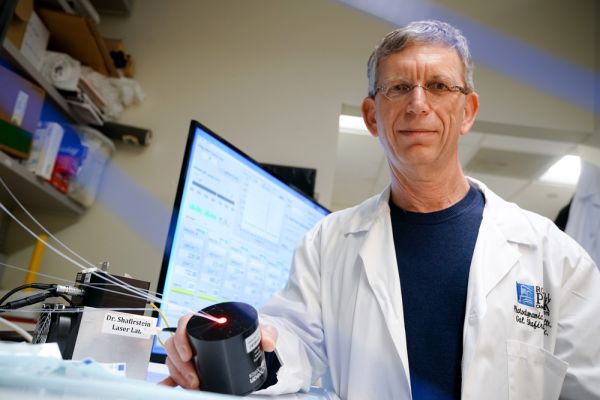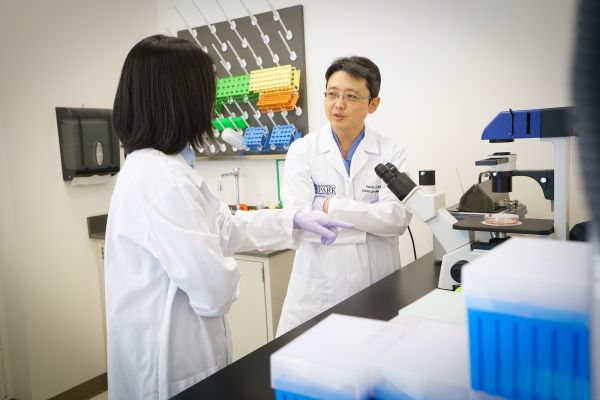Studying type 2 immune response in pancreas, colon & lung cancer
The tumor microenvironment remains a challenging area of research, because of a large number of actors such as the myofibroblasts (MF), extracellular matrix (ECM), immune cells interacting, and microbiome in a dynamic fashion with the cancer cells that determines the overall outcome.
Our research focuses on understanding how tumor microenvironmental factors such as cytokines and chemokines synergize with tumor intrinsic oncogenic pathways for tumor initiation and progression.
Research focus
We study the type 2 immune response (immunocytes-TH2, ILC2, M2 macrophages; cytokines-IL-33, IL-4, IL-5, IL-13) and their role in tumor progression and autoimmune diseases and how we can leverage them as a potential drug target to treat diseases. We also study how the intratumor microbiome (bacteria and fungi) evokes type 2 immune response in cancers.
Fungal Microbiome Regulation of the Pancreatic Cancer Tumor Microenvironment
Gut microbes can interact with the host and modulate disease pathogenesis and response to therapy. These microbes can colonize the pancreas and play a role in PDAC tumorigenesis and progression.
Learn moreType 2 Immune Response in Pancreatic Cancer
Immuno-phenotyping of pancreatic cancer revealed a dramatic expansion of TH2 cells within the CD4+ T cell population in the PDAC TME compared with the normal pancreas and spleen.
Learn moreThe Role of TH2 Cells in Pancreatic Cancer Progression
The goal of this project is to identify factors that are released by cancer cells that attract TH2 cells into the tumor microenvironment and determine if blocking of TH2 infiltration mediated pathway has any therapeutic benefit.
Learn moreCytokine Mediated Metabolic Reprogramming in Cancer
We use biochemical and metabolic techniques to understand whether cMyc increases the glucose consumption which contributes to cancer cell biomass leading to aggressive tumor growth.
Learn morePublications
You'll find the Dey Lab’s research in Science, Cancer Discovery, Nature, and more.
Learn MoreIn The News
A new study, published in the February 2022 issue of Cancer Cell, outlines our team’s discovery of a fungus-activated pathway that fuels the production of a molecule present in cancerous cells in the pancreas, opening a possible new treatment avenue for patients with this devastating disease.
More Headlines
Contact the Dey Lab
Email: Prasenjit.Dey@RoswellPark.org
Phone: 716-845-1300, x5269
Office location: Center for Genetics & Pharmacology (CGP) L5-307
Lab Location: Center for Genetics & Pharmacology (CGP) L15-115
Department of Immunology
Roswell Park Comprehensive Cancer Center
Elm and Carlton Streets
Buffalo, NY 14263


